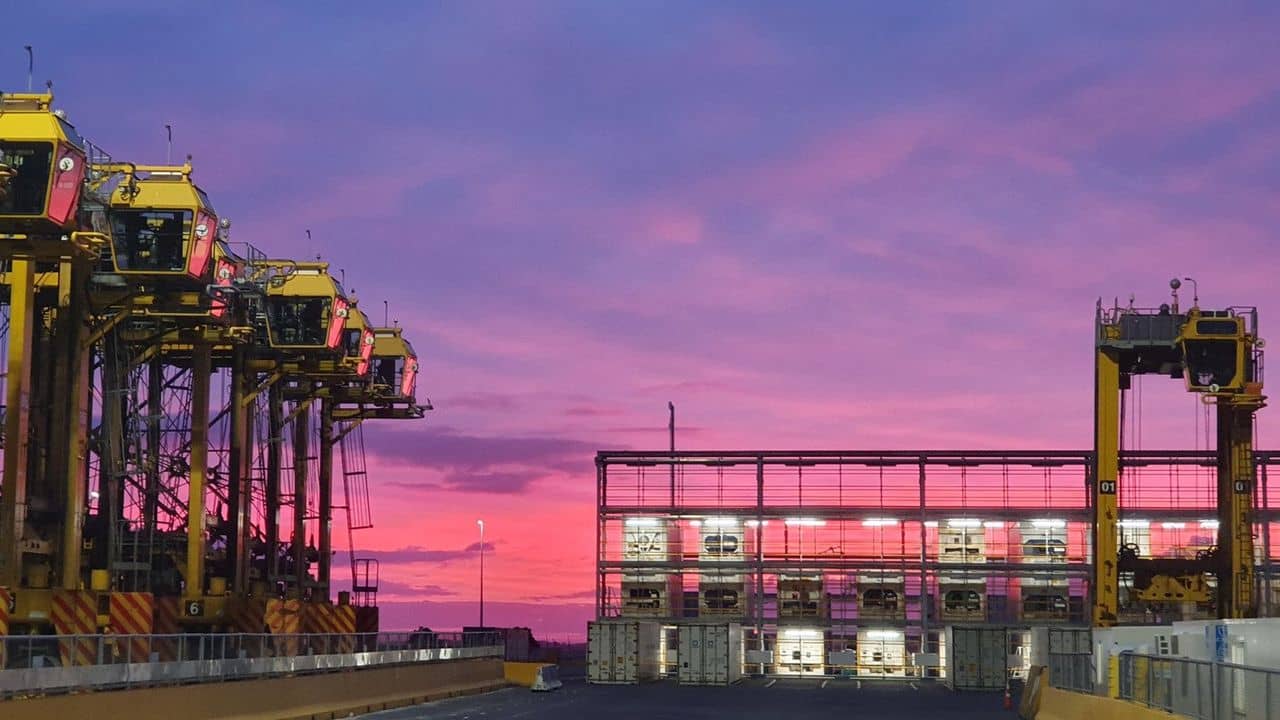
Perfect Storm for NZ Importers Desperate to Get Goods
3-minute read
Bottlenecks related to logistics problems at Ports of Auckland, currently operating at an estimated third of its crane capacity, and an overloaded rail link from the inland Metroport hub to Tauranga, were seeing wholesalers and manufacturers now desperate for pre-Christmas goods and raw materials.
Describing it as a perfect storm for importers, Katherine Rich, chief executive of the NZ Food and Grocery Council, said it is “entirely likely” New Zealand supermarkets will have some issues ensuring stock levels during what is the busiest time of year for retailers.
She said an estimated 75 percent of its supermarket supplier members were reporting significant supply chain disruption on the back of rolling industrial action at Sydney’s Patrick terminals, certain ship lines choosing to bypass NZ and the cancellation of dedicated trans-Tasman services.
It was the worst possible scenario ahead of the busy Christmas season with NZ seemingly “faring worse” than markets across Asia and Australia.
Rich said some issues remained from the covid lockdowns when only importers deemed essential were able to clear cargo from ports.
“That’s not the way ports work, so now put back together a complicated jigsaw puzzle that we disassembled under pandemic lockdown conditions.”
Ports of Auckland (POAL) spokesperson said the congestion is largely due to surging import and export cargo volumes into the country’s two main ports.
The issue had been exacerbated by POAL’s transition to an automated system, which had been pushed back as a result of delays related to the covid-19 lockdown response.
In an effort to catch up, container vessels are being diverted to the multi-cargo port as an option to help manage the traffic flow and delays were currently at about six days.
A Port of Tauranga spokesperson said while Metroport, which was reporting a current ‘road queue’ of about 11 trucks, had now largely got on top of its capacity issues in Auckland, KiwiRail volume caps were still in place to ensure capacity isn’t overwhelmed on the north and south-bound lines.
Those delays, which shipping lines say are now upwards of 12-days into Auckland, prompted Maersk, Mediterranean Shipping Company and other transport operators, to levy ‘congestion charges’ on their customers of up to US$300 per twenty-foot-equivalent container.
Rod Crawford, a director of Bondlast NZ, which manufactures and distributes a range of adhesives and latex compounds for the construction sector said the firm was now “hanging on by threads.”
It had started prioritising orders for major users such as chemical company BASF as key ingredients were now no longer available.
He said the company, which employs 18 staff at its East Tamaki plant, was already paying more to substitute products where possible and has opted to pay a 50 percent premium to send products to the South Island by rail to Christchurch rather than use cheaper ship freight.
He said his polymers business couldn’t bring in containers of critical materials from Melbourne.
“This isn’t just one single product, we could have half a dozen raw materials so if we don’t get those soon, there will be a time when customers will simply be out of stock, meaning major construction companies won’t be able to operate.”

Thomas Corbier, head of procurement at Swiss company Sika, which provides sealing and bonding products into the construction sector, said the entire industry was now at the mercy of limited imports.
He was hopeful things would be better after the Chinese New Year in February 2021.
Rich said the additional costs — added to already high season rates — will make certain products uneconomic.
“NZ is a tiny market for these shipping companies, so this time of year has always been a challenge and will be even more so this year.
“But you can’t argue we are highly reliant on imports, we don’t produce as much as we once did so the knock on effects of logistical or other issues can be significant.”
P.S. Easy Freight Ltd helps New Zealand importers & exporters to save money on international freight and reduce mistakes by guiding how to comply with Customs and biosecurity rules.
➔ Contact us now to learn how we can assist you.
